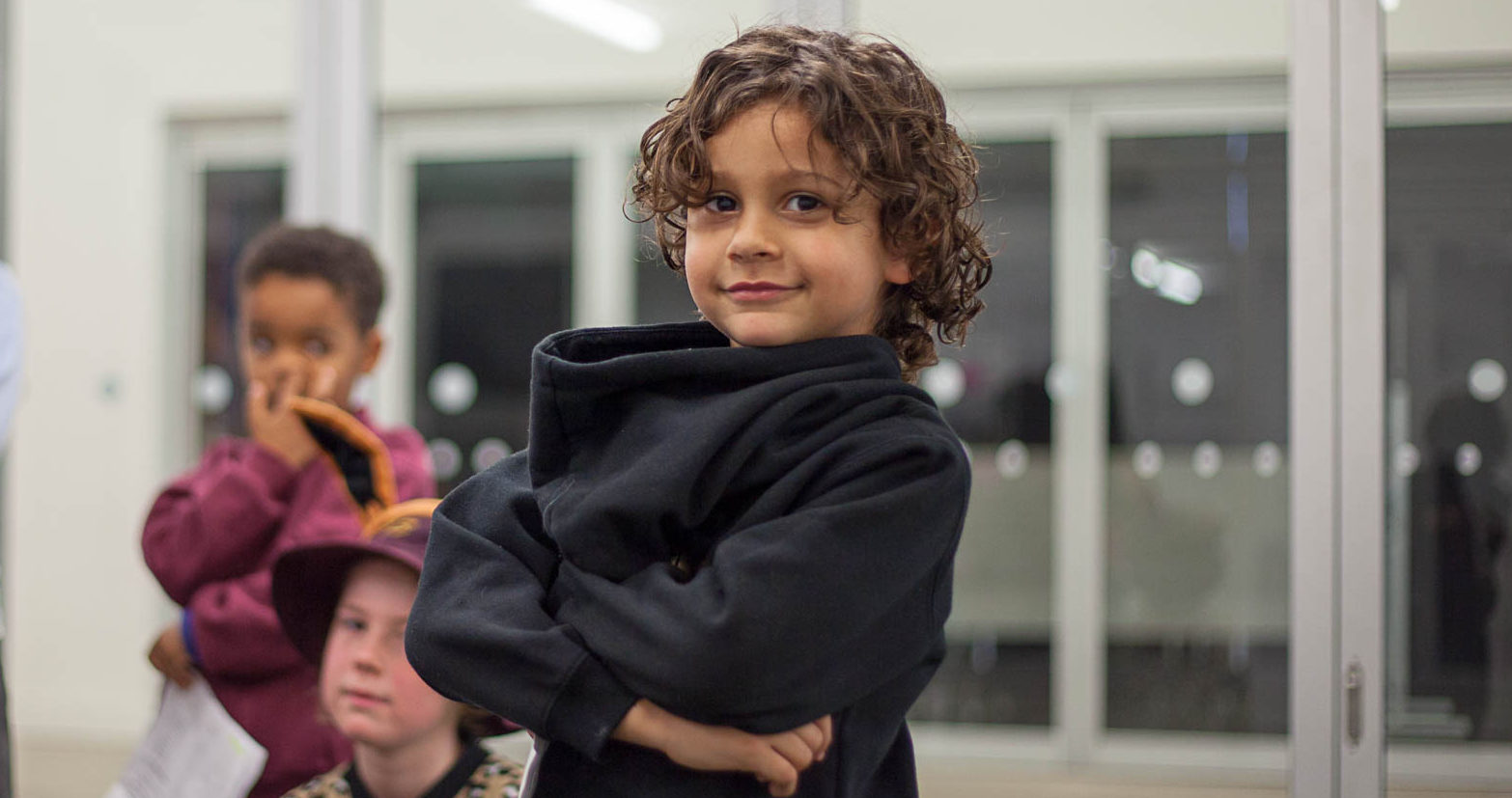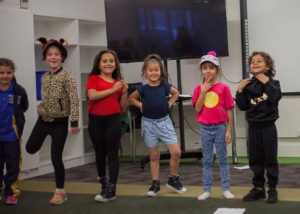
When you and I were younger, our parents stressed to us the importance of studying and rehearsing our times tables.
They booked us into tutoring classes and hung up our academic certificates all the while gleaming with pride and boasting to their friends.
And all for good reason.
Cognitive Intelligence (IQ) – or, the ability to reason, plan, think logically, and comprehend complex ideas – is one of the most highly valuable qualities a human being can possess.
It is what builds societies, shapes laws and makes the world go round.
But in today’s climate – where the world is going round a little quicker than most of us would ever have anticipated – we need to raise children who are more than just cognitively aware.
They too need to be emotionally intelligent.
> What is Emotional Intelligence?
Emotional Intelligence (EQ) – the ability to be aware of, express and control one’s emotions – is fast becoming every modern-day parent’s priority, some even over IQ.
Why?
Not only will a child with a high EQ know how to identify and manage their emotions, but according to Jenny-Ong Khandan, a Clinical Psychologist at Ascend Psychology Parramatta, it is “as important, if not more important than IQ, in determining future success.”
That means that with a highly-developed EQ, not only will your children rule their emotions, but they will rule the world while doing it.
> How can I help my child improve their EQ?
Now, we know where we need to go to make our kids book-smarter; a local library, after-school tutoring classes, the Discovery Channel. But where do we go to make them smarter about the tumultuous and confusing strangers called ‘emotions’ that swirl around in their little minds and bodies?
An Acting Class might just be one of the ways.
> Here are five things that an Acting Class can do for your child’s development:
#1 YOUR CHILD WILL BECOME AWARE OF THEIR EMOTIONS
You only have to walk into an acting class to see emotions at play. In one acting exercise, students may be asked to transform into angry bear and in another, an overzealous alien from the planet Mars.
Because it is difficult for many children to articulate their feelings (due to the fact that they don’t yet understand the feeling, or haven’t found the words to describe them) psychologist Natalie Moujalli says that role play might make it easier. “It is beneficial for children to work on showing a range of emotions through role play because it helps them access and identify with the way they may be feeling at the time, or have previously felt.”
There is nothing quite like an acting class – where characters are put into a myriad of both pleasant and unpleasant scenarios – to normalise emotions for children because just as a character they play in a scene (or watch being played by a peer) might be angry, sad, scared, or happy, they will learn that they too can be the same.
#2 YOUR CHILD WILL EXPRESS SUPPRESSED EMOTIONS
Shadow emotions, a term coined by the well-known Swiss psychoanalyst Carl Jung, are those that we often relegate to the darkness of our subconscious.
In other words, we push them to the side and rarely allow ourselves to experience and/or show them publicly.
This may be because in our upbringing, we were taught that those emotions (which may include cowardice, egotism, and greed) were unpleasant, inappropriate or anti-social. What ends up happening with a lot of these shadow emotions, however, is that they crawl down deep into our subconscious and are given no room to breathe.
This means that if eventually they do come out, they do so in very dramatic and heightened ways.
Acting classes give young people the space and freedom to not only let these emotions free, but to become comfortable with them week after week.
Through games and exercises, they may be asked to tap into some of these emotions for the character or scenario and by doing so, are setting the emotions free.
#3 YOUR CHILD WILL THINK ABOUT THEIR REACTIONS
If most acting teachers were to define the craft they would say quite confidently: acting is reacting. It is about listening to what the other actor is saying or doing, considering it and then making choices on how to react – whether it’s through words, actions, or simple gestures. This encourages team work and fosters peer-to-peer interaction.
Not only are young actors engage in ensemble building activities where they have to listen to one another, but in the scene itself, they have to consider how they, as an actor, will respond to the offer of another actor.
For example, in a scene where one character might be sad, the child has to stop and think about the appropriate way to react to that emotion in the other person. Will they hug them? Will they berate them? No one reaction is correct, as long as it is considered and feels truthful for the actor in the moment.
And such is true for life.
Yes, we want to raise children that jump into interactions and situations with eagerness but only after they’ve read the signs and carefully thought about the road ahead.
#4 YOUR CHILD WILL DEVELOP EMPATHY
There is no other activity or profession that directly calls on someone to step into the shoes of another.
Quite literally, actors are asked to put on the shoes of a character, of another human being. They’re asked to take on their voices and physical mannerisms and adopt their status and relationships to other characters in the scene. And whether those characters they play are like or unlike them, kinder or more mischievous, richer or poorer, something very profound happens: the actor is forced to consider another’s point of view and to feel how it might feel to be that other person.
This skill of empathy is what makes the art of acting so much deeper and more meaningful than people might think.
Acting goes beyond simply wearing a costume and speaking in a different accent; it is about going into the minds and hearts of a range of characters and understanding why they might be the way they are.
In our current political and social climate, where opinions are divided and listening seems to be an absent quality in decision-making, this skill of empathy has never been more necessary in our children who are, for lack of a better phrase, the future.
“Atticus was right. One time he said you never really know a man until you stand in his shoes and walk around in them.” – To Kill A Mockingbird, Harper Lee.

#5 YOUR CHILD WILL USE EMOTIONS TO AID THINKING
To be aware of emotions is a powerful thing.
But for it to be done in isolation defeats their purpose in the first place.
It is when we pay attention to them and then use them to navigate our thinking that their true power can be felt. They can take all of the emotions that they feel in a scene or in the class in general, then evaluate the way they feel about those emotions, and use that to problem solve and rethink choices.
For example, knowing what joy might feel like might lead them to make choices in life that will give them more of that emotion, as well as making choices to avoid feeling the opposite.
This can apply to when they’re making a character choice or choosing friendship groups at school.
By being aware of what makes them feel what, and identifying the specific feelings associated with those thoughts, children can redirect and prioritise their thoughts and be guided to more feel-good choices.

> What EQ is NOT
Before we leave you, we should probably clarify what EQ is NOT. It is not about:
- Being happy all the time
- Positive thinking
There is often a misconception about EQ that it is an airy-fairy slab of mumbo-jumbo that teaches children to be zen about all things life throws at them, and to see the bright side of every bad situation.
We’d argue that this is not the case. Having a highly-developed EQ is not just about seeing the bright side but about seeing all of the sides of all situations. Full stop. Be it the bright or the dark side or the grey sides in between.
It’s about children understanding that within them as individuals exists a complex array of emotions that come and go at different times, and about children feeling safe enough to experience these emotions.
> To wrap up
Do you ever wonder why we flock to the movies and theatre, or why we often choose Netflix and Stan over a night out?
On all of those platforms, we – despite our age, race, gender, socio-economic situations – are exposed to the full gamete of human emotions.
We see characters go through hard times and good times, we see them laugh and cry and get mad and overjoyed and grieve and forgive.
We are drawn to the humanness in these characters and in them, we see ourselves.
And that is the ultimate gift of acting: the ability to recognise that despite all of our differences, we are ultimately the same.
Armed with this knowledge, your child can go forth into the world with a strong sense of self, pride and most importantly, empathy.

Disclaimer: The author of this article recommends that any extra-curricular activity, be it an acting class or another activity, be used in conjunction with school and home strategies to improve Emotional Intelligence. If you have any questions about your child’s EQ or IQ, please consult the advice a health care professional.
Jenny-Ong Khandan is a Clinical Psychologist at Ascend Psychology Parramatta and should you seek further advice, feel free to contact her on (02) 9635 9434 or info@ascendpsychology.com.au.



